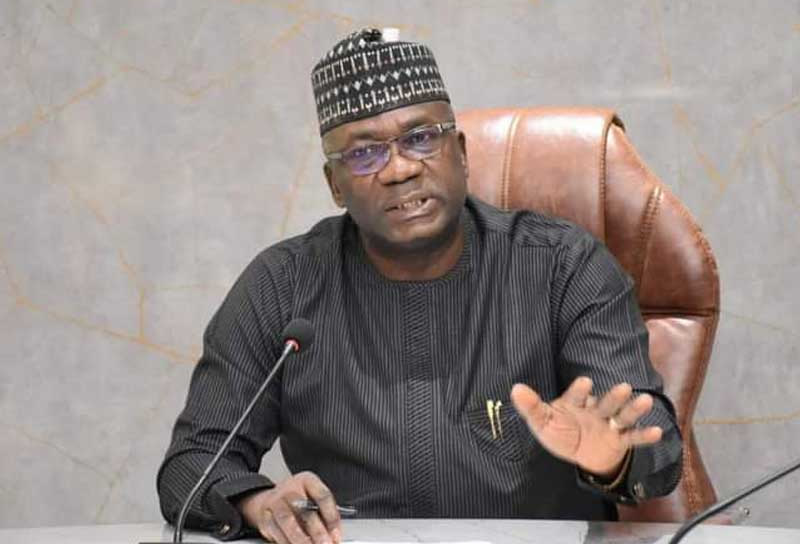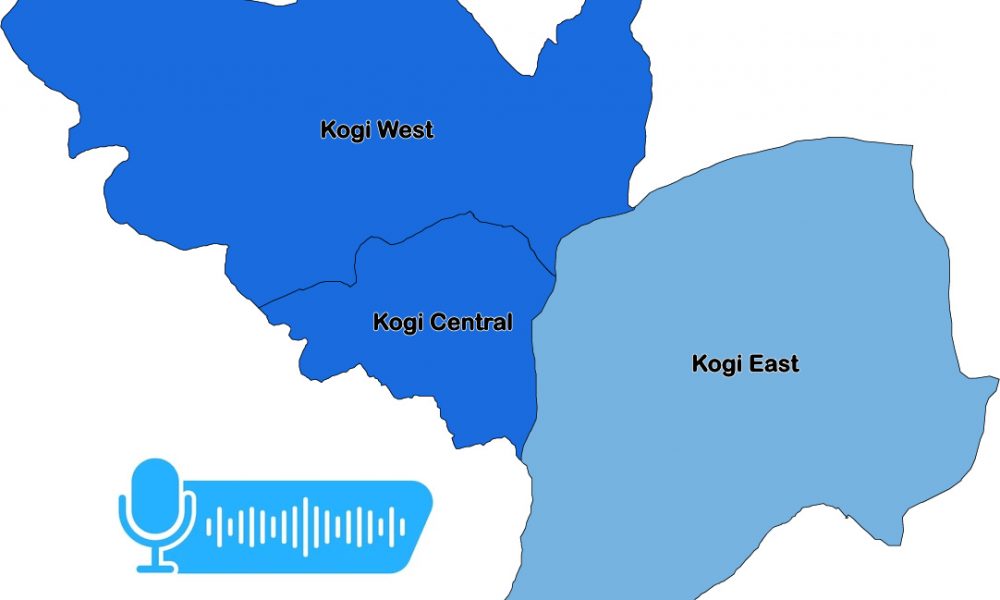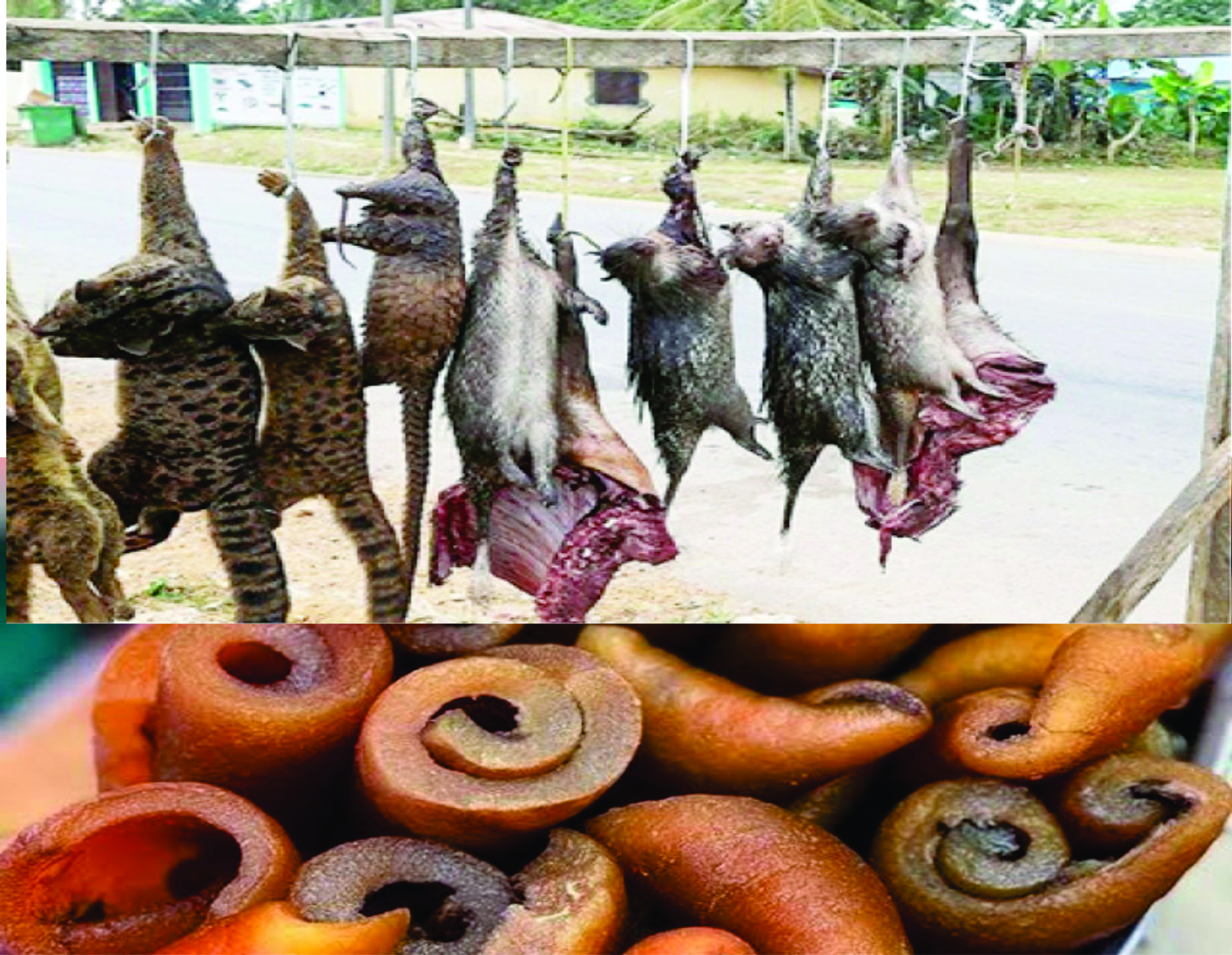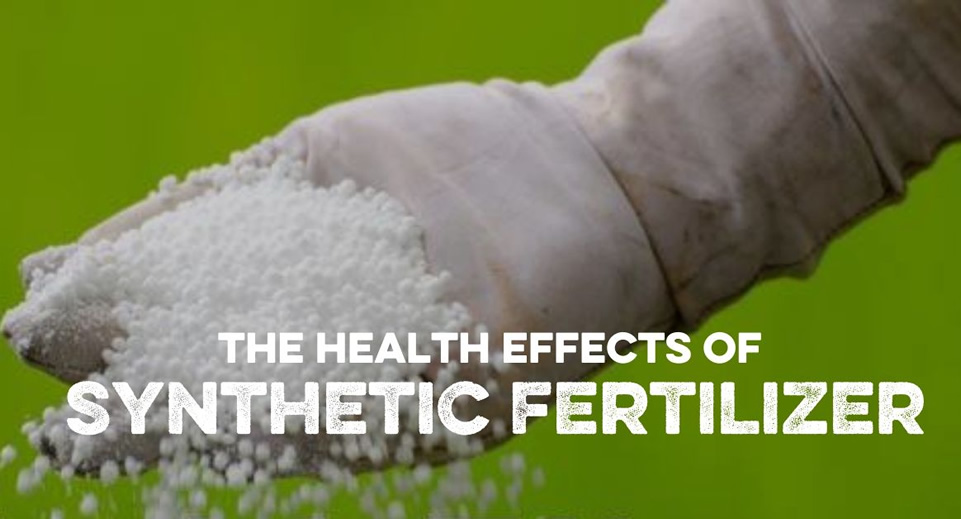Food and Agriculture
FG To Deploy ICT-based Platform to Leverage on Delivering Farm Inputs

For effective delivery of farm inputs, the Federal Government said it had taken steps to leverage the efficient implementation of the rebranded National Agricultural Growth Scheme and Agro-pocket, (NAGs -AP), .
Mr Ibrahim Arabi, National Programme Coordinator, Agricultural Transformation Agenda Support, said this in an interview with the News Agency of Nigeria (NAN) in Abuja. adsbygoogle || []).push({});
He said that the proposed technology would ensure that farm inputs such as fertilizers, seeds, and agrochemicals, among others, got to the farmers across the country.
Arabi said: “We are using an ICT platform delivery system to leverage the system of distribution, we are going to include the farmers and farm inputs in the system to make it an ICT treatment and transparent.”
He said that the recent NAGS meeting was organised to sensitise farmers and fashion out the way forward in the implementation of the scheme.
“This meeting is on the strategy to support farmers with subsidised inputs and also with the institutional capacity for increased productivity,” the coordinator said
On whether the inputs were affordable, Arabi said the Federal Government was giving out about 80 per cent subsidy of the commodity to the farmers.
According to him, the government is using the ICT platform to ensure that farmers have smooth delivery of inputs for the 2023 farming season.
Arabi said that delivery of the inputs would be perfected and the mistakes of 2022 corrected to ensure a seamless delivery of the farm inputs.
Also speaking, Mr Ishaku Buba, Deputy Director, Growth Enhancement Scheme in the Ministry of Agriculture and Rural Development, said that the government was creating a system to evaluate its support to the farmers.
He said: ” We are creating a system whereby we will be able to see the impact of the government on the farmers.
”For instance, I supported you, I met you at this level, and I want to know the impact of what I have supported you with.”
Buba said the distribution of inputs would soon start, adding that the government was targeting the right time of farming activities.
On the cost of inputs such as fertilizers, he said that the cost was dynamic depending on the prevailing market price of the commodity.
“On cost, we look at the prevailing market price and put our subsidy based on that, we cannot fix the price in January and then use it now it is dynamic.
“We have looked at the climatic conditions, we know the procedures to follow for the planting season and we are targeting this period.
“The distribution of inputs will take two to three weeks, but we will start with the seeds. We’ll show the farmers how to apply the seeds very well so that we can get a better result from them,” Buba said.
Mrs Mary Afan, President of the Small-Scale Women Farmers Organisation (SWOFON), said that the women were waiting for the Federal Government to distribute the farm inputs.
According to her, fertilizer which was bought in the market at the rate of N27,000 or N30,000 a bag in 2022, had increased to N35,000 and N38,000 per bag.
She urged the government to consider giving more incentives to the farmers so that they could increase production.
Meanwhile, the Fertiliser Producers, Suppliers Association of Nigeria (FEPSAN) has blamed the current hike in the price of the product on foreign exchange.
Mr Gideon Nagedu, the association’s Executive Secretary, said almost all the blending materials for fertilizer were imported.
Nagedu told the News Agency of Nigeria in Abuja that the current policy on forex had drastically affected the price of the commodity.
According to him, in June, the price of a 50kg bag of fertilizer was as low as N18, 000, adding that at the moment, it had risen to N25, 000 to N26, 000. respectively.
Nagedu said: “Interestingly prices of fertilizer have been fluctuating as a bag of 50kg fertilizer that sold as high as N29,000 last year, just a month ago came as low as N18,000 and in some places N20,000.
“ But, suddenly a change in foreign exchange eventually skyrocketed the price of the product. Most of the blending materials for fertilizer are imported.”
In another development, some farmers in Abuja have decried the high cost of farm inputs, saying this would have a negative impact on food security.
They said only a few farmers have the resources to buy fertilizers and pesticides to apply on their farms.
Mr Adams Dogo, a farmer in Bwari Area Council said the price of a bag of fertilizer was high, contributing to the low crop production yield.
He said: “Most of us local farmers in the rural areas find it very difficult to buy fertilizers and pesticides that we need on the farm, most times we use local means to help boost our farms”.
Mrs Victoria Yohana, also a farmer, appealed to the government to ensure that farmers at all levels got access to farm inputs.
The President of the Potatoes Farmers Association (POFAN), Mr Daniel Okafor, said his members were yet to get fertilizers from the government.
Source: NAN
Author Profile

- Prince Abdulrahman Obaje is a Media, Information and Computer Technology Consultant. A quintessential Journalist, online marketer, social media strategist, Mathematician and Computer Scientist is based in Abuja, Nigeria. He is the Founder and the Publisher of The Informavores!. You can reach me on +234 805 939 5252 or send i-witness report directly to me on news@informavores.com.ng.
Latest entries
 ArticleApril 24, 2024Preventing Fire Outbreak in Solar Power System Installation – Engr Ohida
ArticleApril 24, 2024Preventing Fire Outbreak in Solar Power System Installation – Engr Ohida PoliticsApril 23, 2024Alleged 80.2 Billion Fraud: EFCC May Loose Case Against Yahaya Bello – Ambassador Danjuma
PoliticsApril 23, 2024Alleged 80.2 Billion Fraud: EFCC May Loose Case Against Yahaya Bello – Ambassador Danjuma NewsApril 11, 2024Eid-El-Fitr: ICDA North Central Coordinator Urges Muslim Faithfuls To Abide By Ramadan Lessons
NewsApril 11, 2024Eid-El-Fitr: ICDA North Central Coordinator Urges Muslim Faithfuls To Abide By Ramadan Lessons NewsMarch 20, 2024Investigative Journalists Group, NGIJ Hails Aderinokun on Appointment as Head of Media at Access Corp
NewsMarch 20, 2024Investigative Journalists Group, NGIJ Hails Aderinokun on Appointment as Head of Media at Access Corp
Food and Agriculture
Food Security: FG Started The Distribution of Subsidised Farm Inputs to Small Holder Farmers

In order to tame the tide of sky-rocketing food prices, the Federal Government says i has started the distribution of subsidised farm inputs to small holder farmers across the North Western States of the country. push({});
This is contained in a statement signed by Mrs Mabel Obe, Principal Information Officer, Federal Ministry of Agriculture and Rural Development on Tuesday 1st August, 2023 in Abuja.
She said the distribution was carried out by the ministry through the National Agricultural Growth Scheme and Agropocket (NAGS-AP).
Obe said the initiative would boost food and nutrition security, attract private sector investment, reduce post-harvest losses, as well as add value to local agriculture produce.
She said that Gov. Abba Yusuf of Kano State who spoke at the event in Bunkure Local Government Area, Kano, said that the scheme was being implemented through the Agricultural Transformation Agenda Support Programme Phase One (ATASP-1) of the Federal Government.
He said ATASP-1 was funded by African Development Bank as a Pilot phase to pave way for successful implementation of the forthcoming Policy Based Operation.
”The Policy Based Operation (PBO) was a Sector Budget Support (SBS) operation prepared under the African Emergency Food Production Facility (AEFPF).
“It is funded through a loan from the African Development Bank (AfDB) to be Implemented across the 36 states of the Federation and FCT for a period of two years beginning from 2023,“`he said.
The governor who was represented by his Deputy, Mr Aminu Abdussalem, said that the objective of NAGS-AP was synonymous with the objectives of ATASP-1.
Yusuf said that the benefiting communitiesincluded, Bunkere Rano, Bagwai, Dawakin Kudu, Bebeji and Garun Malam Local Government Areas of the State.
In an address, the Permanent Secretary of the Ministry, Dr Ernest Umakhihe, said that the event would boost agricultural production and guarantee access to quality agricultural inputs.
Umakhihe was represented by the Director, Projects Coordination Unit Department (PCU), Mr Bukar Musa.
He said that the programme was targeted at supporting 60,000 farmers in the five ATASP-1 5 States with highly subsidized inputs to help increase their production level.
”The programme is targeted at supporting 60,000 farmers in the five ATASP-1 5 States with highly subsidized inputs to help increase their production level and achieve economic well-being.
“Government is committed to paying 80 per cent of the total cost of the input package, while each participating farmer is expected to pay the 20 per cent balance for the redemption of his/her inputs at the Redemption Centre.
“The Government this year approved the introduction and use of ICT platform for delivery of the inputs to farmers, making this year’s program a very notable one,” he said.
The National Programme Coordinator, ATAPS 1, Dr Ibrahim Arabi, said that the Global challenges of Covid-19, insecurity as well as food insecurity had informed the Government to restructure ATASP-1.
He said NAGS-AP would be implemented in five states namely Niger , Kano State, Jigawa , Sokoto State as well as Kebbi, adding that the crops being promoted included Rice, Sorghum, and Maize.
NAN
Author Profile
Latest entries
 NewsApril 18, 2024Alleged N80.2billion Money Laundering: EFCC Declares Immediate Kogi Ex-Governor Yahaya Bello Wanted
NewsApril 18, 2024Alleged N80.2billion Money Laundering: EFCC Declares Immediate Kogi Ex-Governor Yahaya Bello Wanted NewsNovember 6, 2023Another Massive Plan By APC To Rig Kogi Election Uncovered!
NewsNovember 6, 2023Another Massive Plan By APC To Rig Kogi Election Uncovered! Food and AgricultureAugust 1, 2023Food Security: FG Started The Distribution of Subsidised Farm Inputs to Small Holder Farmers
Food and AgricultureAugust 1, 2023Food Security: FG Started The Distribution of Subsidised Farm Inputs to Small Holder Farmers PoliticsAugust 1, 2023PEPC: PDP Atiku Appears As Parties Set To Adopt Written Addresses
PoliticsAugust 1, 2023PEPC: PDP Atiku Appears As Parties Set To Adopt Written Addresses
Food and Agriculture
You Can Be Infected With This Disease From Ponmo, Bush Meat, Smoked Meat If…

It also urged adherence to hygiene practices, especially in places where ponmo, bone meals and blood meals are produced.
“We specifically encourage persons at risk such as people who handle animals, people who consume dead animals, healthcare workers, law enforcement officers and anyone who recently travelled to a location with a confirmed anthrax case to take their hygiene practices seriously,” the government said.
Author Profile

- Prince Abdulrahman Obaje is a Media, Information and Computer Technology Consultant. A quintessential Journalist, online marketer, social media strategist, Mathematician and Computer Scientist is based in Abuja, Nigeria. He is the Founder and the Publisher of The Informavores!. You can reach me on +234 805 939 5252 or send i-witness report directly to me on news@informavores.com.ng.
Latest entries
 ArticleApril 24, 2024Preventing Fire Outbreak in Solar Power System Installation – Engr Ohida
ArticleApril 24, 2024Preventing Fire Outbreak in Solar Power System Installation – Engr Ohida PoliticsApril 23, 2024Alleged 80.2 Billion Fraud: EFCC May Loose Case Against Yahaya Bello – Ambassador Danjuma
PoliticsApril 23, 2024Alleged 80.2 Billion Fraud: EFCC May Loose Case Against Yahaya Bello – Ambassador Danjuma NewsApril 11, 2024Eid-El-Fitr: ICDA North Central Coordinator Urges Muslim Faithfuls To Abide By Ramadan Lessons
NewsApril 11, 2024Eid-El-Fitr: ICDA North Central Coordinator Urges Muslim Faithfuls To Abide By Ramadan Lessons NewsMarch 20, 2024Investigative Journalists Group, NGIJ Hails Aderinokun on Appointment as Head of Media at Access Corp
NewsMarch 20, 2024Investigative Journalists Group, NGIJ Hails Aderinokun on Appointment as Head of Media at Access Corp
Food and Agriculture
How Artificial Fertilizers In Food Production Can Cause Untimely Death

A Professor of Soil Fertility and Plant Nutrition, Professor Moses Awodun has reiterated the danger of continuous use of synthetic fertilizers in crop production to human life
The Professor observed that most terminal illnesses ravaging the society could be as a result of the consumption of various food crops including fruits produced with the aid of synthetic fertilizers. adsbygoogle || []).push({}); adsbygoogle || []).push({});
Professor Moses Awodun made this observation while delivering the 129th inaugural lecture of the Federal University of Technology, Akure (FUTA) titled The Nexus of Population, Food Security, Climate Change and Plant Nutrition: Organic Wastes as Alternative Fertilizer in Nigeria.
Awodun, said the risk of dying from cancer (brain cancer, prostate cancer, leukemia, intestinal cancer and lymphoma (non-Hodgkin’s lymphoma, NHL) is said to be six times more when synthetic fertilizers are used on crops that are consumed by people.
He also said synthetic fertilizers has also been associated with causing a condition which leads to difficulty in delivering sufficient oxygen to all body tissues, and is also linked to birth and development disorders such as the Blue Baby Syndrome.
Professor Awodun indicated that crops grown with high impact of fertilizers are less resistant, less nutritiously balanced and rot more rapidly than those which are naturally grown.
According to the Don the application of excess fertilizers is destroying the presence and balance of the Microbiome responsible for the production of nutrients in the soil thus making the farmer more and more dependent on this inorganic fertilizer.
Buttressing his points Professor Awodun referred to a report which stated that an individual today would need to consume twice as much meat, three times as much fruit, four to five times as many vegetables to obtain the same amount of minerals and trace elements available in the same food in 1940 because of the use of synthetic fertilizers.
Awodun said that with the rich endowment of abundant natural, mineral and human resources which characterize developing world and especially Nigeria, it is expected that they should be able to produce enough food to feed their people , generate foreign exchange earnings from the export and sales of surplus.
He said Nigeria soil should be the next Black oil in a world of climate change, adding that if as a country, it can curtail the vagaries in farm activities; it will go a long way in restoring life to the soil.
Awodun, a one-time Acting Director, Centre for Renewable Energy Technology (CRET) advised that to meet a state of equilibrium in food production in the face of an increasing population, food security and climate change, the government should invest in healthy living soils by channeling agricultural subsidies towards sustainable farming methods, stating that if this is done right ,agriculture can conserve the diversity of species found in soil, halt land degradation and desertification which in turn would help countries ensure future food securities and mitigate climate change.
He said farmers should be encouraged to obtain all their fertilizers from organic sources such as compost manures, green manures and legumes.
He advised that for health, commercial and environmental reasons it is clear that fertilizers should be used with caution. He said crop production for future food security will require sustainable fertilizer management, which might include more sophisticated decisions support tools, improved agronomic practices and cropping systems that require less fertilizer input.
In his remark the Chairman at the event and Vice Chancellor, Prof Joseph Fuwape, represented by the Deputy Vice Chancellor, Development, Professor Philip Oguntunde described the lecture as a contemporary one to present happenings within the society.
He also commended the lecturer for his immense contributions to the body of knowledge in his field of study.
Author Profile

- Prince Abdulrahman Obaje is a Media, Information and Computer Technology Consultant. A quintessential Journalist, online marketer, social media strategist, Mathematician and Computer Scientist is based in Abuja, Nigeria. He is the Founder and the Publisher of The Informavores!. You can reach me on +234 805 939 5252 or send i-witness report directly to me on news@informavores.com.ng.
Latest entries
 ArticleApril 24, 2024Preventing Fire Outbreak in Solar Power System Installation – Engr Ohida
ArticleApril 24, 2024Preventing Fire Outbreak in Solar Power System Installation – Engr Ohida PoliticsApril 23, 2024Alleged 80.2 Billion Fraud: EFCC May Loose Case Against Yahaya Bello – Ambassador Danjuma
PoliticsApril 23, 2024Alleged 80.2 Billion Fraud: EFCC May Loose Case Against Yahaya Bello – Ambassador Danjuma NewsApril 11, 2024Eid-El-Fitr: ICDA North Central Coordinator Urges Muslim Faithfuls To Abide By Ramadan Lessons
NewsApril 11, 2024Eid-El-Fitr: ICDA North Central Coordinator Urges Muslim Faithfuls To Abide By Ramadan Lessons NewsMarch 20, 2024Investigative Journalists Group, NGIJ Hails Aderinokun on Appointment as Head of Media at Access Corp
NewsMarch 20, 2024Investigative Journalists Group, NGIJ Hails Aderinokun on Appointment as Head of Media at Access Corp




